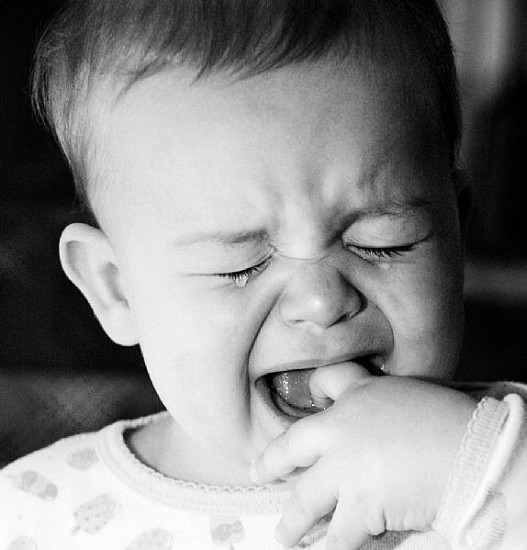Your infant baby suddenly became fuzzy, seems to be all red in the face and cannot sleep. He seems restless and drools a lot. The first thing you did was to touch your baby and you found out that he seems a bit hot than the usual. “Oh no! My baby is having a fever!†You scream to yourself. You hugged your baby and caressed to give all the comfort in the world but he still isn’t comfortable. He seems to be in so much pain. If you could only be a superhero and take all the pain away but then, you are just human. You’ve decided that you will take him to the hospital for immediate consultation. Somebody dearest to you tells you that it just might be a teething issue and you had second thoughts but still remained intact with your will to take your baby to the hospital. Upon reaching the hospital facility, the medical practitioners who first attended to you asked what the problem is and you asked them if the fever is due to teething.
When we think about fever, infection always comes first into our mind. Yes, fever is a sign of an infection but not all the time. Parents have good assessment skills when it comes to fever but having a handy thermometer at home will be best to assess presence of elevated body temperature. It is a fact that when you ask medical practitioners about teething issues, they would always give you the same answer that there is no correlation between the two and that the fever might be a symptom of some other problem that needs to be assessed to be diagnosed properly. To this date, there is no research proving that fever can be caused by an impending tooth eruption but if you ask mothers who have experienced nursing their baby who had fever right before the tooth eruption, you might get a testimonial saying that their baby had fever because of teething.
While experts disagree about whether teething actually causes symptoms such as fever, fussiness, drooling, facial rash, or diarrhea or whether these just coincidences appearing at the same time when the tooth is about to erupt, many parents and caregivers believe and maintain comfort measures in case their baby tends to have these symptoms, they usually attribute it to teething, basically if it falls on the usual months when the first tooth comes out.
The symptoms that most likely to occur as teething starts include:
Fussiness
Crying that cannot be pacified
Low grade fever
diarrhea
Facial rash
Facial redness
Drooling
Gum swelling and sensitivity
Refusal of food
Biting behaviour
Irritability
Sleeping problems
Some experts like William Sears believe that teething can cause mild diarrhea and diaper rash because excessive formation of saliva during inflammation and irritability causes the baby to swallow them all and make the stools more softer or loose. The mild fever and other symptoms that occur along with teething manifest as a sign of inflammation. It could be a child’s way to cry for help when he cannot communicate well at that time. Other experts believe that teething cannot cause fever, diarrhea, vomiting or loss of appetite, and thus may be a sign of an infection of other illness. The one thing that experts agree on about is that parents and caregivers should have their child assessed by a medical practitioner to be able to diagnose what really causes these symptoms. For the child’s safety and security, diagnostic tests and proper assessment of a medical expert should be of importance especially because it is a pediatric case.
Even these are not yet proven in research, there are many things that you can do in order to attend to your baby’s needs during teething. A comforting touch or massage can assure the infant. You can also give something cold to chew on. A cold washcloth or chilled teether can help relieve inflammation symptoms a bit. You can also give the baby some firm rubber teether to chew on since teething makes the baby more preoccupied on the mouth looking for something to grab his mouth on. A tepid sponge bath can be a comforting measure and can help cool the mild fever that the baby is experiencing. Giving good ventilation and a silent space can help the baby sleep. A simple gentle but firm rubbing of a clean finger on the baby’s gums can help relieve pain. Diverting the baby’s attention can make temporary pain relief by using imagery or entertaining sounds or music to get the baby a bit amused. Administering mild pain relievers even at right dosages should be done in precaution, meaning, should only be done with doctor’s prescription or advise. Never give Aspirin since it is highly associated with the pediatric disease, Reye’s syndrome. It can lead to death. Take necessary precautions before giving any medicine to the child. Make sure that it has been consulted with a doctor.
